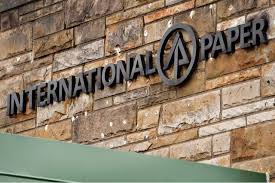By Brandon Moseley
Alabama Political Reporter
International Paper’s mill closing is terribly bad economic news for Alabama’s economic recovery.
Alabama State Senator Paul Bussman (R) from Cullman said on Facebook, “As most of you have heard, International Paper has announced the closing of the Courtland mill in Courtland, AL. This mill employees over 1000 people and supports hundreds of timber owners and loggers. This is truly a devastating announcement for all of north AL. I have been in contact with the company, the Governor is meeting with them today and I can assure those effected that we are looking at every option available to prevent this closure. Until a solution can be identified, let us all keep these families in our prayers.”
Alabama Governor Robert Bentley said in a statement on Thursday, “The people who work for International Paper in Courtland remain on my mind, and I want to do whatever I can on the state level to help. This morning, I directed Greg Canfield, Secretary of the Alabama Department of Commerce, to contact company officials at Courtland’s International Paper plant. Canfied is scheduled to meet Friday with plant officials to discuss and explore any possible options that could help prevent the loss of jobs. We may not be able to save those jobs. But we’ll do our best to try to keep them.”
Gov. Bentley said, “In the meantime, I am directing the Alabama Department of Economic and Community Affairs to provide rapid response services for all those affected. As part of these services, displaced workers will be eligible for career retraining dollars, and ADECA will connect those employees with available assistance. ADECA’s Workforce Development Division will also send a Rapid Response Team to Lawrence County in the near future. The team will meet with workers and discuss with them a wide variety of options to help them during this difficult time. We will also continue to work on the state level to attract more jobs to Alabama.”
Bentley said that Alabama has incentives to help bring in new industry, but unfortunately not all the incentives we need to help retain industries and keep them in the state. Bentley said, “These type of incentives would help existing industries bring in new capital, retool, and change with the times as needed. I plan to work with the Legislature to see if we can develop a plan to help existing businesses continue to operate.”
While the paper plant does face foreign competition and (some argue excessive) regulations by the U.S. Environmental Protection Agency, much of the decline in paper is due to more of us going wireless. The plant produces paper for magazines and billing. As more and more Americans opt for paperless billing, our bills go to our email box instead of our mail box and we read e-magazines instead of getting bulky paper magazines in our mailbox.
The closing of paper mills is also hard on Alabama’s forest owners. Most of the forestland in Alabama is owned by individuals and families who rely on growing forests for periodic income, often in retirement. Most are growing the forest with the intent of producing poles and lumber; but pulpwood is an inevitable byproduct of that business whether it is thinning the trees to make room for more growth, marketing storm damaged trees (the twisting affect in a tornado make those logs unsuitable for lumber) or selling the top third of the tree when it is mature and harvested for lumber.
Forestry remains the largest industry in Alabama, followed closely by agriculture.
















































